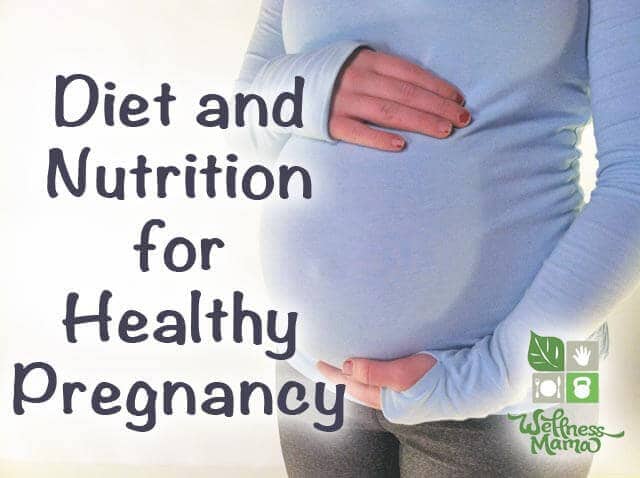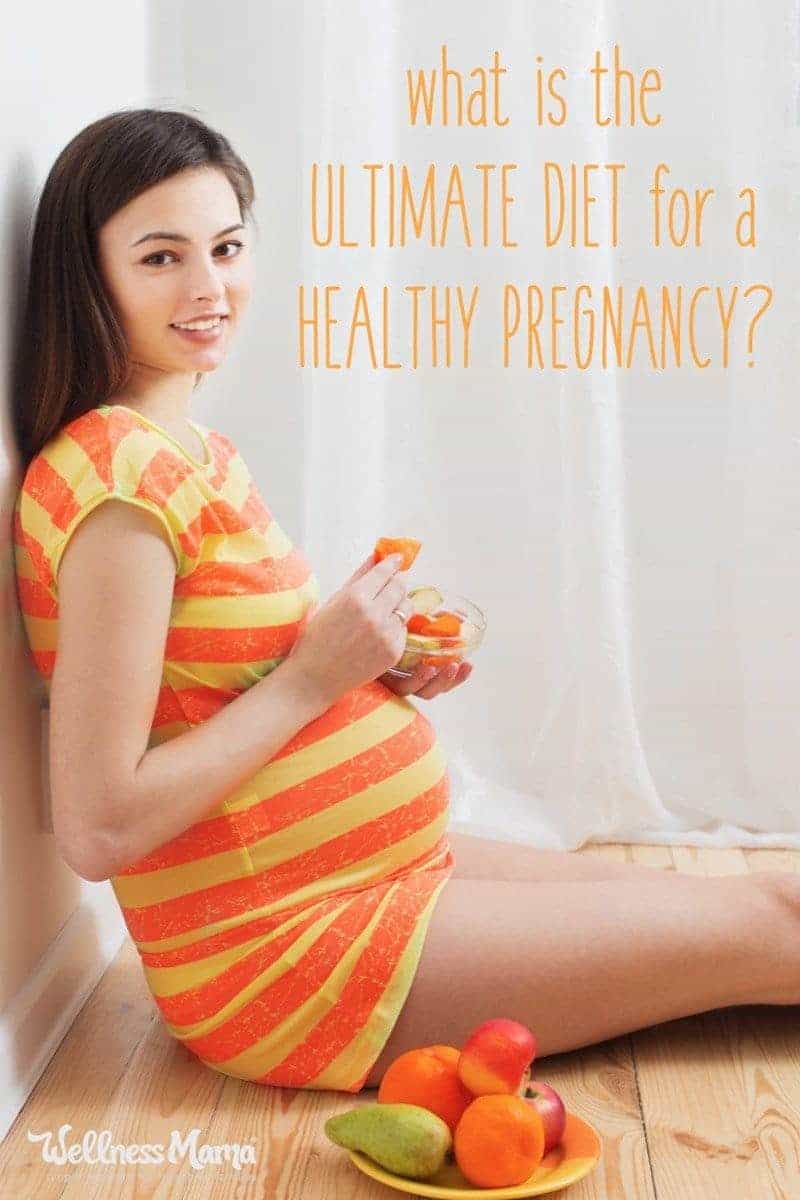Oh, pregnancy…. that wonderful time when everyone offers unwanted advice and your body changes in ways you didn’t know possible. Since I’m now in the third trimester of pregnancy myself, and starting to really “feel” pregnant, I thought I would offer my own completely unsolicited advice for a healthy pregnancy. (If you’re pregnant, you are probably getting advice from the grocery store cashier, relatives, and complete strangers, so why not?). I am not a doctor, midwife, or medical professional, just another mom who has been there too!
This is only the fifth time I’ve been through all the joys of pregnancy (read about my previous pregnancies here), so I certainly don’t claim to have all the answers, but thought I’d share what I’ve learned along the way!
Healthy Pregnancy Begins Before Conception
From experience, I know that the best time to begin a healthy pregnancy regimen is before you conceive. Having a strong nutritional system in place not only increases your odds of healthy conception, but will also help your body handle the transitions of early pregnancy without all the discomfort.
For those struggling with achieving a pregnancy, optimizing diet and lifestyle factors can make a tremendous difference in successfully conceiving naturally.
Having positive dietary and lifestyle habits in place will also help minimize the discomforts of pregnancy and make sure baby is getting optimal nutrition as well.
Pregnancy Nutrition
Ensuring optimal nutrition during pregnancy is one of the best gifts you can give your baby. Doctors warn of the foods to avoid (cold cuts, excess caffeine, soft cheeses, alcohol, etc.) but few give detailed advice on what optimal pregnancy nutrition should look like.
I certainly had to navigate these waters myself during my first few pregnancies, and I’ve noticed that as my diet and health have improved, my pregnancies have gotten much easier.
Unfortunately, for many women, eating the best diet for baby during pregnancy requires forgetting all the conventional wisdom they’ve ever been told on health eating.
Low fat diet- not good!
“Healthy whole grains” – not so good either!
Keeping blood sugar stable with little carb snacks all day- not really!
A woman’s body is quite literally building an entire human being during pregnancy, and as such, she needs a lot of quality sources of all the things needed to support the human body- mainly proteins, fats, vegetables and fruits, and certain supplements she can’t adequately get from food. Eating right during pregnancy benefits not only baby, but mom as well… from balancing hormones to preventing stretch marks.
Foods to focus on during pre-conception, pregnancy and breastfeeding:
- Protein: Most women need 80+ grams of protein every day for healthy pregnancy. Some research shows lower risk of preclampsia and other complications with adequate protein, and some women report less morning sickness when they consume this much protein.
- Fats: This is often the biggest hurdle for many women, but consuming adequate fats is absolutely vital to baby’s organ and brain development. Women should focus on healthy sources like meat (including red meat), butter, eggs, olive/oil, coconut/oil, nuts, limited dairy, etc.
- Vegetables and Fruits: Vegetables and fruits have a variety of vitamins, minerals and fiber that are helpful during pregnancy. Eating a varied diet including a lot of green leafy vegetables can also help raise Vitamin K levels.
- Water: A woman’s blood volume actually increases during pregnancy and her body has to supply fluid to replenish the amniotic fluid the baby is in. Drinking enough water (usually around a gallon a day) can help fight off morning sickness and also helps prevent constipation and make sure mom and baby are properly hydrated.
Foods to avoid during pre-conception, pregnancy and breastfeeding
- Caffeine: There are a lot of conflicting opinions on if caffeine is safe during pregnancy and if so, how much. It certainly isn’t necessary, and is best avoided. If you do consume caffeine, limit to one cup a day and not from soda.
- Processed Foods: With up to 200 chemicals found in the umbilical cord blood of some babies, there is certainly good reason to avoid any unnecessary chemicals in foods or environment. Processed foods also offer little nutrition and can lead to constipation and blood sugar instability (which can cause morning sickness).
- Vegetable Oils and Fats: As I’ve explained before, vegetable oils and other omega-6 fats are foreign to the body and there is no need for them. They have even been linked to cell mutation and cancers, and should especially be avoided by pregnant women due to the rapid cell development of the unborn baby.
- Grains and Sugars: Grains and sugars are certainly not the most nutrient dense food choices, and in some people, they can even cause health problems. Pregnant women should focus on the most bioavailable and dense sources of nutrition, which means choosing meats, fats, and vegetables/fruits over grains, sugars and baked goods.
Supplements For Healthy Pregnancy
Supplement needs can vary by woman, and all supplements should be approved by a doctor or midwife to ensure safety during pregnancy. In general, pregnant women have higher nutrient needs and often supplements are the only way to get adequate nutrients.
These basic supplements are ones that are often beneficial during pregnancy:
- Probiotics: Best obtained from high quality supplements, fermented foods, and beverages like water kefir and kombucha. Since a baby is born with a sterile gut and then has his or her gut bacteria begin to develop based on the beneficial (or not) gut flora of the mother this is an important factor! Adequate Probiotics can also help reduce the risk of Group B strep, and have even helped get rid of Group B strep before delivery when probiotic supplements or organic plain yogurt are used vaginally.
- Omega-3s, DHA, RHA– Adequate good fats are absolutely essential for baby’s development and it is difficult to get enough from diet. Supplementing high quality sources of these fats can help reduce risk of complications and give baby the necessary nutrients for good development. Sardines are a great food source.
- Vitamin D– This article reports that “Compared to women who took 400 IU of vitamin D daily, those who took 4,000 IU were half as likely to develop gestational diabetes, pregnancy-related high blood pressure, or preeclampsia, Wagner says. They were also less likely to give birth prematurely.” Vitamin D needs vary, but many doctors are now suggesting at least 4,000 IU and up to 10,000 IU a day.
- Folate– Well known for its preventative effects against spina bifida and other developmental struggles, folate is another important supplement. The current recommendation is 400 micrograms, though many doctors recommend 2,000 micrograms or more for optimal development, and folate is water soluble and difficult to overdose.
- Iron– Anemia can cause serious complications during delivery, and is easy to prevent. If blood tests show that iron levels are low, iron supplements may be necessary, but things like cooking with cast iron pans, eating red meat/grass fed liver and eating a variety of fats and vegetables can help optimize iron levels. I personally much prefer to get this from food rather than supplements.
Herbs During Pregnancy
Consult with a qualified herbalist, midwife, or doctor before taking any herbs during pregnancy! This chart gives a basic breakdown of herbs that are helpful, and ones that should be avoided.
If your doctor or midwife approves, some herbs can be very beneficial during pregnancy. My favorite is to make a strong tea that I drink throughout pregnancy using the following herbs:
- Red Raspberry Leaf (4 parts)
- Nettle Leaf (1 part)
- Alfalfa Leaf (1 part)
- Peppermint (1 part or less)- optional
I blend these dried herbs and make a strong tea by putting 3/4 cup or more in a large glass jar and filling with boiling water and letting sit overnight. I strain, and keep iced in the fridge.
Red Raspberry Leaf:
Red Raspberry Leaf: it is an all-around excellent herb to use for pregnancy. It is a uterine tonic, anti-abortive, and helps prevent infection. Aids in preventing cramps and anemia. Prevents excessive bleeding during and after labor and will facilitate the birth process by stimulating contractions.
Peppermint:
Peppermint: after the first trimester, may be used to help digestion, soothe the stomach and overcome nausea. It is an all-over body strengthener and cleanser.
Alfalfa Leaf and Nettle Leaf:
Can will guard against excessive bleeding as they have vitamin K; will improve kidney function and help prevent hemorrhoids.
Weston A. Price Diet:
The Weston A. Price Foundation offers more detailed suggestions for diet during pregnancy and nursing, and I follow many of their guidelines, though I don’t include the grains in any form and am not always able to consume that much raw dairy. Always check with your own doctor or midwife to find out the best diet for you during pregnancy.
From the Weston A. Price website:
“1 quart (or 32 ounces) whole milk daily, preferably raw and from pasture-fed cows
4 tablespoons butter daily, preferably from pasture-fed cows
2 or more eggs daily, preferably from pastured chickens
Additional egg yolks daily, added to smoothies, salad dressings, scrambled eggs, etc.
3-4 ounces fresh liver, once or twice per week (If you have been told to avoid liver for fear of getting “too much Vitamin A,” be sure to read Vitamin A Saga)
Fresh seafood, 2-4 times per week, particularly wild salmon, shellfish and fish eggs
Fresh beef or lamb daily, always consumed with the fat
Oily fish or lard daily, for vitamin D
2 tablespoons coconut oil daily, used in cooking or smoothies, etc.
Lacto-fermented condiments and beverages
Bone broths used in soups, stews and sauces
Soaked whole grains
Fresh vegetables and fruits
Foods to Avoid
- Trans fatty acids (e.g., hydrogenated oils)
- Junk foods
- Commercial fried foods
- Sugar
- White flour
- Soft drinks
- Caffeine
- Alcohol
- Cigarettes
- Drugs (even prescription drugs)”
Interested in a more natural pregnancy?
Sign up for the world’s first pregnancy week-to-week series from a *natural* perspective! Created by my friend Genevieve from Mama Natural, the series shows you what’s up with baby, mama, and more each week. You’ll discover natural remedies for various pregnancy symptoms and prepare for your best and most natural birth!
Click the image below to get access now!






Leave a Reply